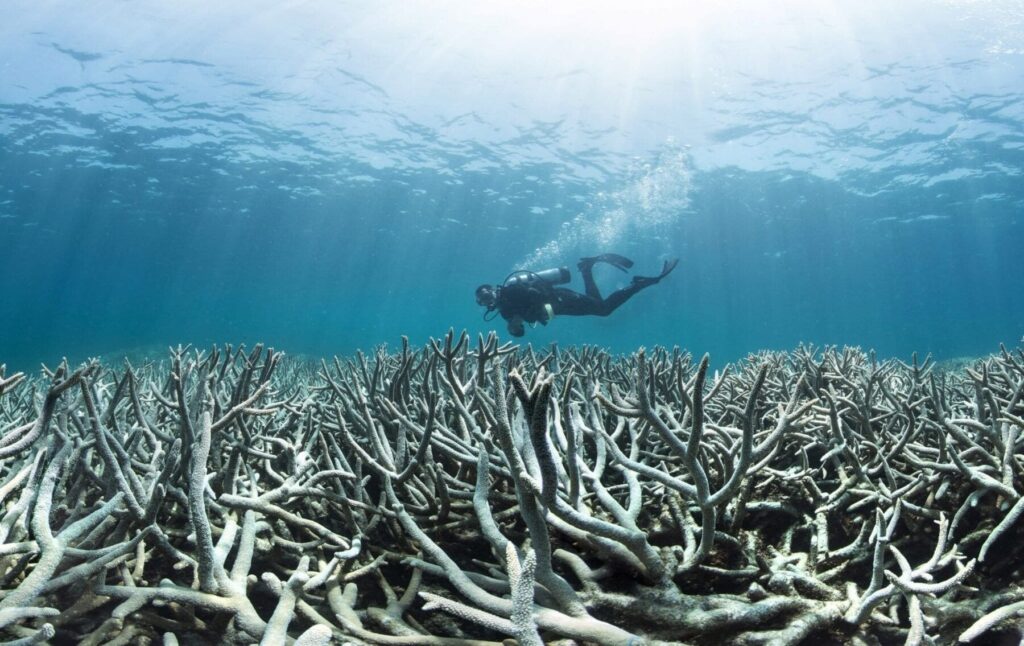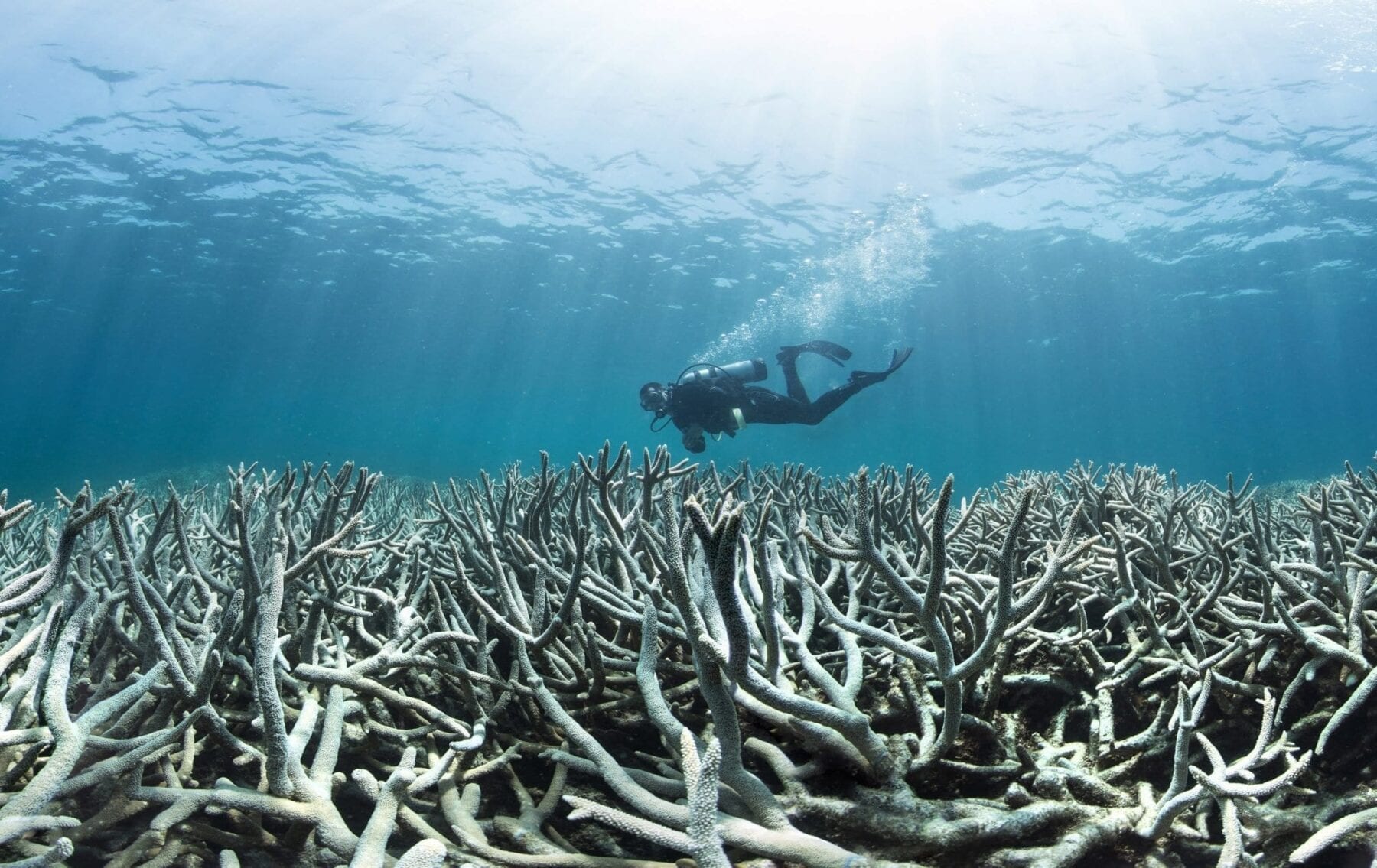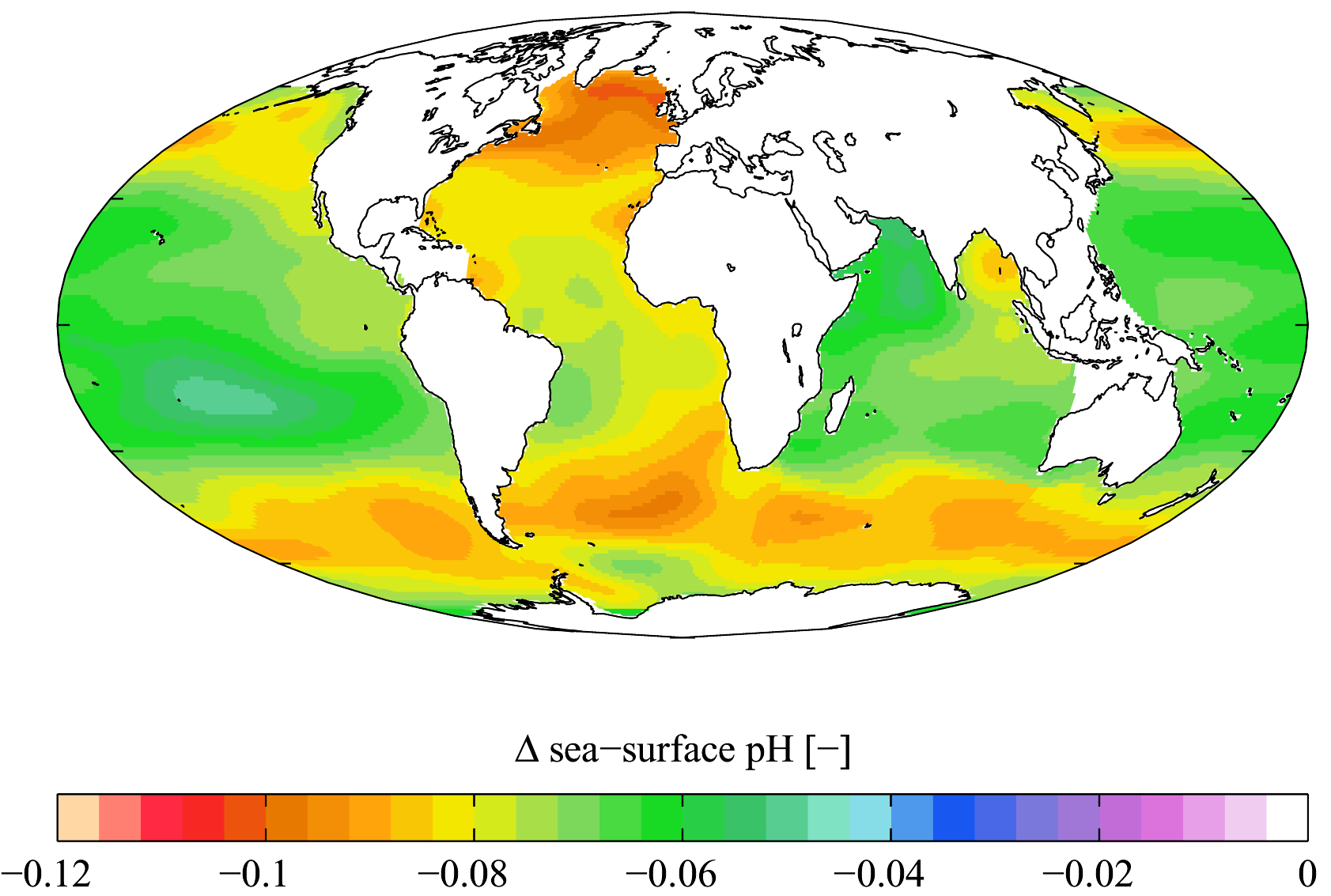
Scientists say that only significant cuts in fossil fuel emissions will prevent changes to the environment becoming more widespread
Ocean acidification could have serious consequences for the millions of people globally whose lives depend on coastal protection, fisheries and aquaculture, a new publication suggests.
Writing in Emerging Topics in Life Sciences, scientists say that only significant cuts in fossil fuel emissions will prevent the changes already evident in areas with projected future carbon dioxide levels becoming more widespread.
They also call for a binding international agreement that builds on the United Nations Sustainable Development Goals to minimise and address the impacts of ocean acidification.
The article was written by Jason Hall-Spencer, Professor of Marine Biology at the University of Plymouth, and Plymouth graduate Dr Ben Harvey, now Assistant Professor at the University of Tsukuba’s Shimoda Marine Research Center.
They and other collaborators have published several studies over the past decade that show the threats posed by ocean acidification in terms of habitat degradation and a loss of biodiversity.
These have centered around the coast of Japan, where they demonstrated ocean acidification is having a major impact on marine life, and in the Mediterranean where they showed it was having a negative impact on wild fish.
Both regions have volcanic CO2 seeps, where the escaping gas dissolves into the sea water and creates conditions similar to that expected to occur worldwide in the coming years.
Their new publication provides a synthesis of the likely effects of ocean acidification on ecosystem properties, functions and services and is based on laboratory experiments and observations along natural gradients in CO2.
It says that studies at CO2 seeps worldwide have shown that reefs made by organisms with shells or skeletons, such oysters or corals, are sensitive to ocean acidification and that degraded reefs provide less coastal protection and less habitat for commercially important fish and shellfish.
This amplifies the risks to marine goods and services from climate change causing shifts to seaweed dominance, habitat degradation and a loss of biodiversity in the tropics, the sub-tropics and on temperate coasts.
Dr Harvey, who graduated from the BSc (Hons) Ocean Science programme in 2008, said:
“We are releasing around 1 million tons of carbon dioxide per hour into the earth’s atmosphere. About 25% of this gas is taken up by the ocean where it reacts with seawater to form a weak acid, causing surface ocean pH to fall by around 0.002 units per year. The chemistry of this rapid change in surface waters is understood, yet there is uncertainty about its effects on society which is what we are trying to overcome in this study.”
Professor Hall-Spencer, the publication’s lead author, added said:
“The Paris Agreement on climate change was welcome. But it does not mention ocean acidification, nor the fact that this rapid change in surface ocean chemistry undermines the social, economic and environmental pillars of sustainable development. The time is ripe for a ‘Paris Agreement for the oceans’, with the specific target to minimise and address the impacts of ocean acidification, including through enhanced scientific cooperation at all levels.”
Learn more: Ocean acidification ‘could have consequences for millions’
The Latest on: Ocean acidification
[google_news title=”” keyword=”ocean acidification” num_posts=”10″ blurb_length=”0″ show_thumb=”left”]
via Google News
The Latest on: Ocean acidification
- Plastic pollution and ocean acidification reduce Antarctic krill development, BAS researchon May 5, 2024 at 5:00 pm
Plastic pollution combined with ocean acidification hinders the development of Antarctic krill in the Southern Ocean, research published in Marine Frontiers reveals. Antarctic krill (Euphausia ...
- Mussel shells are changing as the ocean warms, study findson May 2, 2024 at 5:00 pm
But mussels are threatened by the warming waters and ocean acidification arriving with climate change. New research shows that mussels from several East Coast locations, though not yet Massachusetts, ...
- Museum Program Will Look At Ocean Acidificationon April 25, 2024 at 9:00 pm
The Cape Cod Museum of Natural History in Brewster will present four sessions of “Ocean Commotion” on Saturdays, May 4 and 18, and June 1 and 15, from 10:30 to ...
- Video: Is there a quick fix for ocean acidification?on April 14, 2024 at 5:00 pm
Acidification is threatening the ocean's ability to pull carbon dioxide out of our atmosphere, so scientists and startups are looking to ocean-sized antacids to raise its pH. While they might not ...
- Is There a Fix for Ocean Acidification?on April 10, 2024 at 5:00 pm
(via Reactions) The ocean is getting more and more acidic. Can we solve it by emptying a giant bottle of antacid into the ocean? No… but the idea of lowering the ocean’s acidity in order to decrease ...
- Water pollution is fueling ocean acidification. Environmentalists urge California to acton April 10, 2024 at 5:00 pm
Welcome to today’s edition of Boiling Point. I’m Ian James, a reporter on The Times climate and environment team, filling in for my colleague Sammy Roth. As the burning of fossil fuels and ...
- Ocean Acidificationon April 10, 2024 at 5:38 am
Rising CO2 pollution in the atmosphere is also raising ocean acidity at a rate 100 times faster than any during the past 55 million years Ocean acidification Uncertainty limits 8.047 2022 15 05 2000 ...
- Ocean Acidificationon April 9, 2024 at 5:00 pm
Rising CO2 pollution in the atmosphere is also raising ocean acidity at a rate 100 times faster than any during the past 55 million years Ocean acidification Uncertainty limits 8.047 2022 15 05 ...
- Is There a Quick Fix for Ocean Acidification?on April 9, 2024 at 5:00 pm
So can this quick fix basic solution work to solve our ocean acidification woes? No, obviously not. But there is some really cool science here and we might actually be on the right path ...
via Bing News











